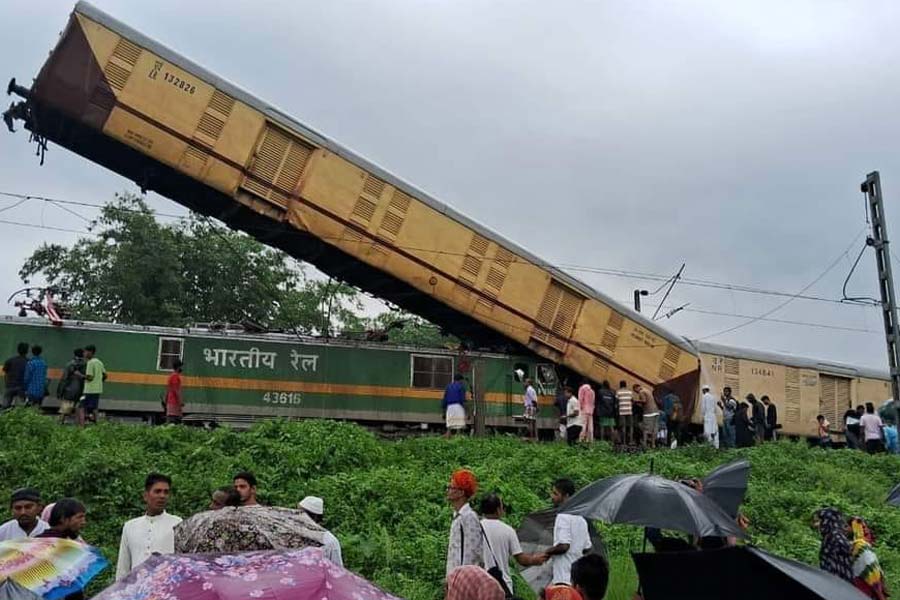Yet another major train accident — several people died when a goods train rammed into the Down Kanchenjunga Express near Rangapani railway station in North Bengal — must prompt conscientious citizens to ask the government the following question: has the railways been derailed on account of compromises in safety standards? Answers to questions specific to this tragedy must also be found. For instance, why was the goods train allowed to run at a speed higher than the prescribed norm? How did both ill-fated trains land on the same track? Was the accident the result of human error? The chairman of the railway board has blamed the mishap on the driver of the goods train. But human error does not happen without a cause. Data suggest that over 18,000 posts for loco pilots and assistant loco pilots have been lying vacant for years. The resultant shortage of manpower has led to train drivers working far longer shifts, enhancing the chances of mistakes. The working conditions during summer are an additional challenge too. The disbursal of modern technology has not been up to the mark either. Senior railway officials have stated that Kavach, an automatic train protection system, field trials for which began way back in 2016, has been deployed in less than 1,500 kilometres of railway tracks: the Indian Railways, incidentally, covers a total of 70,000 km in terms of tracks.
The political Opposition is, unsurprisingly, eager to ask tough questions of the powers that be who seem to believe that they are above the principle of accountability. The politics is of secondary importance, but not the queries. This is because the railways has suffered serious accidents in the recent past, raising concern not only about tardy investments in safety equipment but also the government’s lopsided priorities. There is, in fact, a case to argue that the Narendra Modi government accords greater importance to populism — is India’s bullet train initiative meant to camouflage critical gaps that are endangering the lives of ordinary passengers? — than the health of the railways. The needs of the hour should be obvious. The modernisation of railway infrastructure along with the completion of safety templates like Kavach must begin on a war footing. The excuse of prohibitive costs cannot be used as a fig leaf any longer. There must also be a complete re-evaluation of railway projects so that passenger safety gains priority over expensive undertakings that may turn out to be the proverbial white elephant on tracks.










